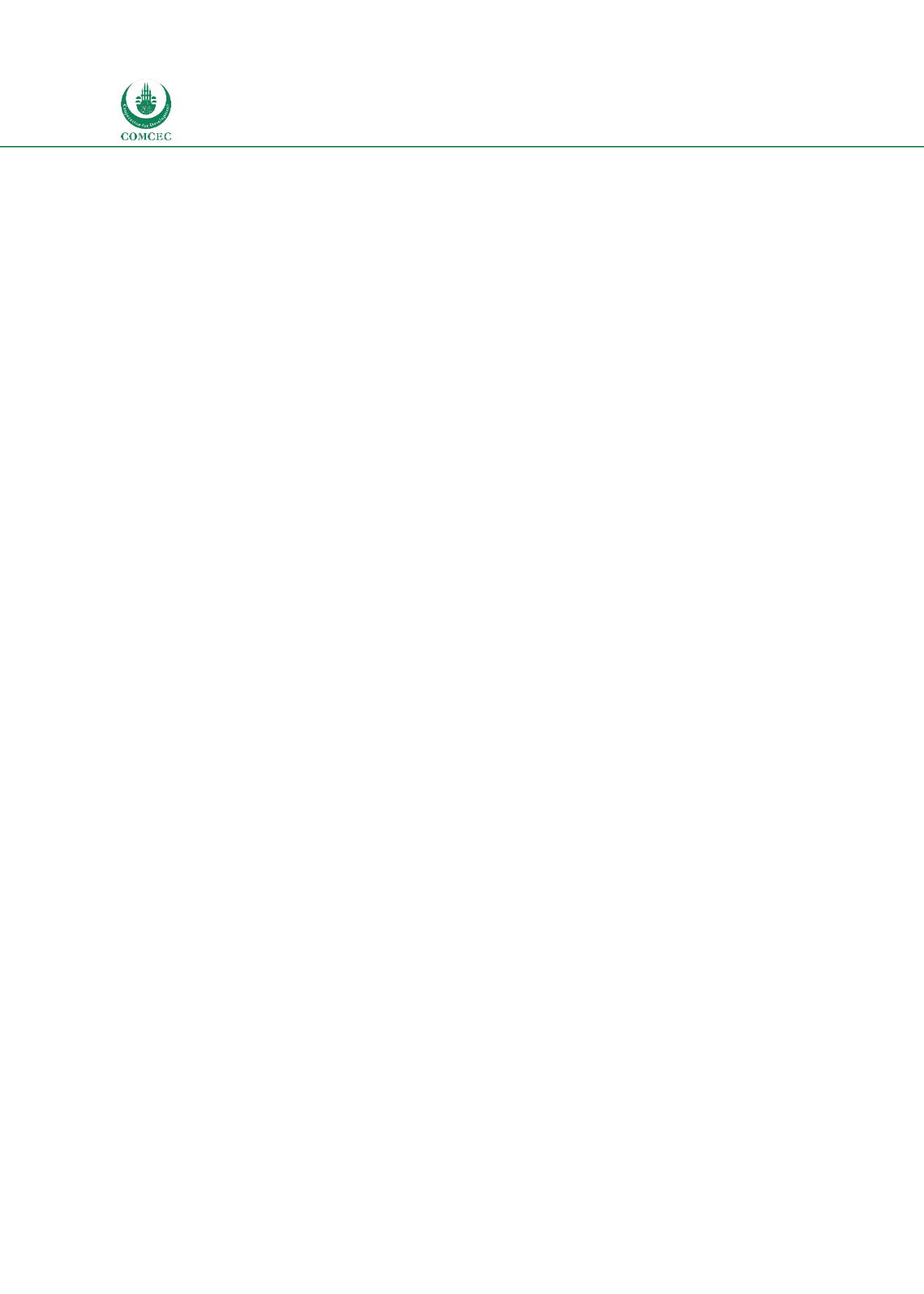

National and Global Islamic Financial Architecture:
Problems and Possible Solutions for the OIC Member Countries
70
such as mail, email or fax (CBE 2016). The complaints are conveyed to the concerned banks
and the department follows up to ensure their resolution. Similarly, one of the roles of the
Egyptian Financial Supervisory Authority is to ensure that the rights of investors and clients of
the nonbanking financial sector are protected. In line with Article 48 of the Executive
Regulation of Supervision and Control of Insurance Law (Law No. 10, 1981), a standing
committee established Decision No. 120 2009 with the goal of settling disputes in the
insurance, mortgage finance and leasing industries (EFSA 2016b). Specifically, in case of
insurance the committee deals with the insurer or beneficiary when compensation is not paid
according to the terms of the policy. The rulings of the committee are not binding and the
parties have the right to take the dispute to the court.
The Egyptian Banking Institute (EBI) of the Central Bank of Egypt has taken the lead in
promoting financial literacy in the country among various target groups such as schools and
university students and SMEs (EBI 2016b). EBI has partnered with international organizations
to produce outreach financial education programs (EBI 2016a). For example, EBI became a
new member in the OECD International Network on Financial Education (INFE) in order to
protect the Egyptian consumers (EBI 2016b). The main goal of this joint venture is to
strengthen and spread knowledge related to financial literacy in Egypt through understanding
banking and financial markets. The financial education activities include, among others,
awareness sessions at universities, interactive financial education sessions at schools, children
and youth group visits to banks, financial education days, etc. EBI launched series of radio talk
shows on financial literacy awareness and education and also held financial literacy workshops
to help develop the financial education strategy (CYFI 2014). There are no separate awareness
literacy programs for Islamic finance.
Deposit Insurance
The Central Bank of Egypt established rules to supervise and secure deposits in both
conventional and Islamic banks as in Law No.88 of 2003. Article 87 of the law maintains the
establishment of a Deposit Insurance Fund (DIF) at the Central Bank of Egypt as a separate
legal entity with its own board of trustees and independent budget. The articles of association
of the deposit insurance scheme would identify the governance of the Fund and includes issues
such as membership fees, scope and limit of insurance, auditing system, etc. There is no
specific program for deposit insurance for Islamic banks.
4.2.7. Human Capital & Knowledge Development Framework
The Egyptian Banking Institute (EBI), an affiliate of the Central Bank of Egypt, offers programs,
workshops and training to help and develop the human capital in the financial sector. It has
more than 60 training programs in both the Arabic and English languages. Moreover, it
cooperates with the best international institutions such as Development Dimensions
International and Financial Technology Transfer Agency to provide the training. CBI’s banking
and finance training packages include a course on Islamic Banking.
Egyptian Islamic Finance Association (EIFA) offers Islamic finance courses as well as Islamic
finance programs for Accounting and Auditing Organization for Islamic Financial Institutions
(AAOIFI) certificates. B&F-CIPA offers a certified Islamic Professional Accountant program.
Moreover, Al-Azhar University has an Islamic Economics and Finance Center and some other
universities such as the American University in Cairo, Nile University and the British University
















